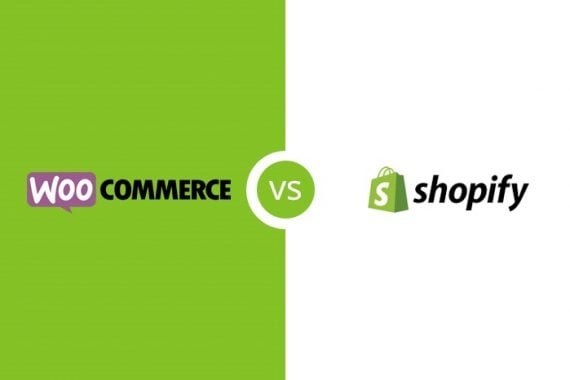The world of eCommerce is rapidly growing, and entrepreneurs are constantly looking for the best platforms to host their online stores. Two of the most popular options are Shopify and WooCommerce (built on WordPress). In this article, we’ll delve into the details of both platforms, comparing their features, pricing, and usability to help you decide which one is best for your eCommerce business.
Overview of Shopify and WooCommerce
Shopify
Shopify is a dedicated eCommerce platform that provides an all-in-one solution for online store owners. Founded in 2004, Shopify has grown to become one of the largest eCommerce platforms in the world, hosting over 1 million active stores.
WooCommerce
WooCommerce is a popular eCommerce plugin built on top of WordPress, the world’s most widely used content management system (CMS). With over 5 million active installations, WooCommerce is one of the most popular eCommerce solutions available.
Features Comparison
1. Ease of Use
- Shopify: User-friendly interface, easy to set up and navigate, even for those without technical expertise.
- WooCommerce: Requires some technical knowledge, especially for customization and setup.
2. Customization
- Shopify: Offers a range of customizable themes and a drag-and-drop editor.
- WooCommerce: Provides extensive customization options using WordPress themes and plugins.
3. Payment Gateways
- Shopify: Supports over 100 payment gateways, including PayPal, Apple Pay, and Google Pay.
- WooCommerce: Offers support for over 100 payment gateways, including PayPal, Stripe, and Square.
4. Inventory Management
- Shopify: Provides built-in inventory management features, including tracking and alerts.
- WooCommerce: Offers inventory management features through plugins and extensions.
5. Shipping Integration
- Shopify: Integrates with major shipping carriers, including USPS, UPS, and FedEx.
- WooCommerce: Offers shipping integration through plugins and extensions.
6. Security
- Shopify: Provides built-in security features, including SSL certificates and PCI compliance.
- WooCommerce: Offers security features through WordPress plugins and extensions.
7. Scalability
- Shopify: Designed to handle high traffic and sales volumes, making it an excellent choice for large businesses.
- WooCommerce: Can be scalable, but may require additional plugins and optimization.
Pricing Comparison
Shopify
- Basic Shopify: $29/month (online credit card rates: 2.9% + 30¢ per transaction)
- Shopify: $79/month (online credit card rates: 2.6% + 30¢ per transaction)
- Advanced Shopify: $299/month (online credit card rates: 2.4% + 30¢ per transaction)
WooCommerce
- Free to download and install
- Extensions and plugins: variable pricing (some free, some paid)
- Hosting: requires separate hosting, which can range from $5 to $50 per month
Conclusion
Choosing between Shopify and WooCommerce ultimately depends on your specific business needs and technical expertise. Shopify offers a user-friendly, all-in-one solution with built-in features and scalability. WooCommerce, on the other hand, provides flexibility and customization options, but requires more technical knowledge and separate hosting.
If you’re looking for a hassle-free, easy-to-use platform, Shopify might be the better choice. However, if you’re comfortable with WordPress and want more control over customization and costs, WooCommerce could be the way to go.
Recommendation
For beginners or those who prioritize ease of use, Shopify is a great option. For those who value flexibility and customization, WooCommerce is worth considering.
Ultimately, it’s essential to weigh the pros and cons of each platform and consider your specific business needs before making a decision.


